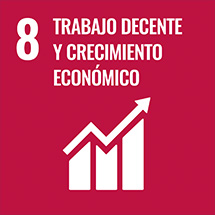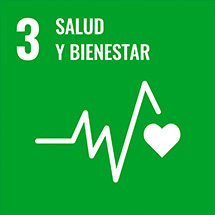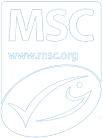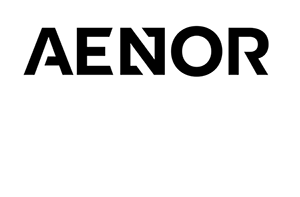
Responsible
Purchasing
Policy
At SALICA, we select our suppliers of raw and auxiliary materials and inputs based on economic, environmental and social criteria. We believe that this is the only way for us to able to continue our activity in the future, while generating shared value throughout our supply chain.
We are very conscious of the role of our suppliers in attaining this goal and encourage them to use similar criteria in their selection of and relations with their own suppliers. We seek to forge long and stable relations with them based on the principles of trust, respect and transparency, helping the parties involved and our respective connections.
Given that our primary raw material is fish and is a natural resource caught all over the world, we consider it necessary to emphasise the minimum requirements that should govern its purchase and which must hence be adopted by our suppliers, be they fleets or producers.
All these commitments are set out in our RESPONSIBLE PURCHASING POLICY.
Specifically, and in accordance with its contents, we strive daily to improve the sustainability of fishery resources, as reflected in the breakdown of our FISH PURCHASES.
Sustainable Development
Goals
The Sustainable Development Goals (SDG) are a call to all countries to take action to eradicate poverty and protect the planet as a means to ensure peace and prosperity. SALICA’s strategy is essentially aligned with the achievement of the following goals:
-

LIFE BELOW WATER
As a company engaged in the processing of seafood, SALICA drives responsible fishing with minimum environmental impact through its raw material suppliers, helping to conserve fishery resources. We have adopted the commitments of the International Seafood Sustainability Foundation (ISSF) for sustainable fishing and meet all the standards required to ensure the continuity of marine species.
-

Responsible production and consumption
We are aware of the impacts of our production processes. As a result, we are committed to implementing new and better production practices and responsible consumption to mitigate and reduce any adverse effect generated along the value chain, integrating economic, social and environmental aspects, in order to sustainably conserve resources for future generations.
-

Decent work and economic growth
Tuna processing is an intensive labour process with high value-added. We focus our policies and efforts on creating fair and sustainable jobs, promoting a safe working environment for our staff and respect for labour rights. We extend these policies to our suppliers through our Code of Conduct, thus reaffirming the prohibition of discrimination or harassment, respect for fair remuneration and the prohibition of forced labour and child labour, with the ultimate goal of contributing both to fair jobs and economic growth.
-

Health & Well-being
We reaffirm our commitment to a healthy lifestyle and encourage well-being among all people of all ages.

Tuna
Commitments 2020
Aware of the impact of our activity on fishery resources, their habitat and the communities developed around them, we endorse the commitments set out in the World Economic Forum’s Tuna 2020 Traceability Declaration:
1. Tuna Traceability Commitment.
We pledge to eliminate any form of slavery and ensure suppliers at least meet minimum social standards in management practices as recommended in the Universal Declaration of Human Rights and the International Labour Organization’s Conventions and Recommendations.
2. Commitment to a Socially Responsible Tuna Supply Chain.
We pledge to eliminate any form of slavery and ensure suppliers at least meet minimum social standards in management practices as recommended in the Universal Declaration of Human Rights and the International Labour Organization’s Conventions and Recommendations.
3. Commitment to Environmentally Responsible Tuna Sources.
We pledge to source from tuna fisheries that have implemented:
a) Robust science-based management plans, including harvest strategies that can maintain stocks at, or restore them at least to, levels which can produce maximum sustainable yield; and
b) Measures to ensure that impacts of fisheries on the environment are sustainable, including bycatch mitigation techniques.
To put this pledge into effect we will continue to explore new opportunities to support the multi-stakeholder initiatives mentioned above, and we will work to continually increase our sourcing from tuna fisheries certified by schemes that are internationally recognized by the Global Sustainable Seafood Initiative (GSSI).
4. Government Partnership.
We pledge to work with and support the actions of government to achieve the above commitments.

Quality, innovation and continuous improvement
Since its inception, SALICA has been a benchmark in tuna production for its in-depth knowledge of the raw material, its best practices in manufacturing and the quality of its products.
This quality is constantly verified through continued monitoring and analysis, allowing us to attain and maintain the very highest of standards, as demonstrated by the BRC and IFS certifications of all of our plants.
Moreover, as specialists in canned and frozen production, our innovation has been directed at improving processes and developing novel tuna products for both retail and processing and the food-service industry.
Our company understands and assumes the natural and integrated adoption of continuous improvement directed at customer satisfaction, consumer health and safety, environmental protection and the promotion of social responsibility. In this regard, actions, procedures and/or changes are constantly being proposed to improve the way we do things, our profitability, the production system and our results.
Partners

In 2009, acclaimed scientists, leaders in industry and environmental champions launched the International Seafood Sustainability Foundation (ISSF) based on shared concerns about the future of global tuna fisheries and a desire to do something about it.

BTWC globally promotes sustainable management of tuna as a natural resource using scientific knowledge and good practices leadership.

MSC works with fisheries, scientists and industry to ensure sustainable fishing in our oceans and to make it easy to find and buy sustainable and certified products from the sea.

The Responsible Fishing Tuna (RFT) standard contributes to the catch of this species being carried out in a sustainable way, helping to protect the seas and ensuring that fishermen have adequate working conditions, safety and life on board. This certification, a pioneer worldwide, ensures the traceability of RFT tuna from its fishing until it reaches your table. By means of the AENOR certification of the APR Chain of Custody, the consumer can recognize canned tuna that has been caught in a responsible way by labeling the AENOR Brand for Responsible Fishing Tuna.
- For many years now, SALICA INDUSTRIA ALIMENTARIA has partnered on a stable basis with organisations helping the most disadvantaged segments of the population. These include Lantegi Batuak, an organisation that seeks to include people with disabilities in the workplace, and the Banco de Alimentos de Bizkaia, which collects and distributes food to people in need.
- SALICA ALIMENTOS CONGELADOS works with a number of non-profit agencies and organisations, to help the most disadvantaged sectors of the population in Galicia, and the Regional Ministry of Culture, Education and University, with the launch of the first part of the vocational training course in food processing (dual mode).
- SALICA DEL ECUADOR, for its part, collaborates with community relations plans and recently signed a partnership agreement with the Ecuadorian National Olympic Committee.

